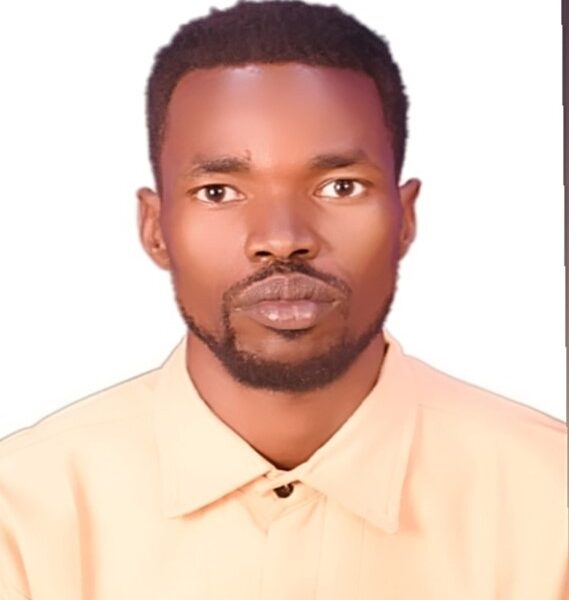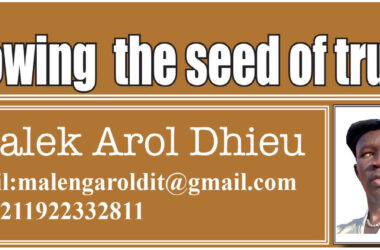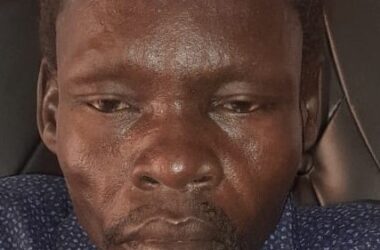By Deng Chol
In this country, the signs of deep struggle are everywhere.
The economy is faltering, families are under pressure, and too many citizens live one meal away from hunger.
Parents who only want the best for their children cannot afford to keep them in school.
Hospitals, where lives should be saved, are underfunded, understaffed, or non-existent in many communities.
Roads meant to connect our states and markets remain impassable.
These are not abstract issues they are daily realities for millions of people.
But our challenges go deeper than failing infrastructure and weak policies.
Our political system itself is broken.
Rather than serving the people, too many of our leaders serve themselves.
Power has become a game of division, divide the people, weaken their unity, and maintain control.
Politics today thrives on hate, suspicion, and tribal loyalty.
Citizens are encouraged to see one another as rivals or enemies, rather than as neighbors working toward the same future.
This breakdown has seeped into our social fabric. Where there should be trust, there is suspicion.
Where there should be solidarity, there is division.
Our relationships with one another between tribes, religions, and communities are strained.
This, too, is by design.
Politicians know that a people who fight among themselves will not stand together to hold power accountable.
And yet, if we strip away the rhetoric, the slogans, and the divisions, what emerges is a surprising truth, we, the people, want the same things.
Across region, tribe, or class, our aspirations are not different.
We all want equality where opportunities are based on merit, not privilege.
We want schools that are properly funded, where children can learn in dignity.
We want hospitals that are equipped to save lives.
We want safe, passable roads that connect our communities and open the door to trade and development.
Most of all, we want an economy where families can afford to put food on the table without daily fear of hunger.
These are not impossible demands.
They are the foundations of a functioning society.
Yet they remain unfulfilled, not because the resources are lacking, but because the will to prioritize the people over politics is missing.
What we do not want is equally clear.
We do not want a politics of hate, where suspicion is weaponized for electoral gain.
We do not want a politics of tribe, where one’s birthplace determines one’s worth.
We do not want endless cycles of division, where politics itself is used to drive wedges between citizens instead of bringing them together.
Instead, what we need is a new kind of politics one rooted in dignity, compassion, and service.
Some may dismiss this as naïve, but love, in the political sense, is not weakness.
Love is the determination to govern with justice, to build schools and hospitals where they are needed most, and to ensure that every child, no matter their background, has a fair chance.
Love is the discipline to fight corruption, because stealing from the people is stealing from one’s own community.
It would be a mistake, however, to assume that politicians will suddenly choose this path on their own.
They will not.
Division serves their interests too well.
If unity is to come, it must come from us the citizens.
We must resist the temptation to see each other as enemies and instead recognize that our struggles are shared.
We must demand accountability not on behalf of one tribe or one group, but for the nation as a whole.
History shows that when ordinary people come together around common goals, they can force change.
Citizens can rebuild what politicians have broken.
Communities can organize to demand roads, schools, and hospitals. People can refuse to be manipulated by hate.
The first step is realizing that our power lies not in division, but in unity.
Yes, our economy is broken.
Yes, our politics is broken.
Yes, even our relationships with one another are under strain.
But these realities do not define us permanently.
They are the results of choices made by those who benefit from division and they can be undone by choices made by those who long for unity.
The country belongs not to the few who govern, but to the millions who endure.
If we choose to stand together, if we insist on a politics of service and compassion, then we can build an economy that works, a political system that serves, and a society that heals.
The responsibility is ours.
The future is ours.
And the power is ours if only we decide to claim it.
The writer is a concerned citizen and can be reached at:
dengolesmo5@gmail.com




